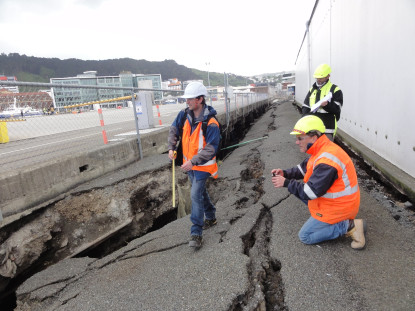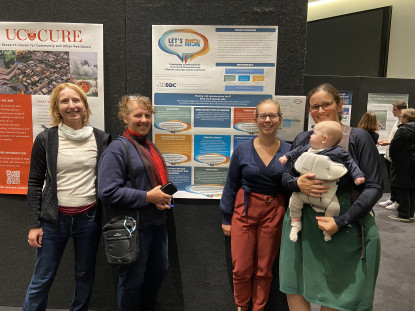Demonstrable impact from funding natural hazards research
From where and how we build our homes to what is important to communities, research into our country’s natural hazards is having a tangible impact on how New Zealanders prepare for future events.
The Natural Hazards Commission Toka Tū Ake, previously the Earthquake Commission, invests millions annually into research that supports risk-based decision-making about New Zealand’s built environment and the way we use land.
NHC’s Head of Research Dr Natalie Balfour says, "As science funders, we want to invest in knowledge that has good returns for New Zealand. This includes highly technical research that supports practitioners to build stronger homes on better land, as well as social research that improves our understanding of what motivates people to prepare for natural hazard events”.
A project having a profound impact on the engineering world is Prof Misko Cubrinovski’s work on liquefaction. Recognising a gap in the way practitioners assess liquefaction hazard, Cubrinovski used NHC funding to develop a suite of tools to enable engineers to carry out advanced liquefaction analysis.

Professor Misko Cubrinovski, right, and his team investigate the impact of liquefaction after the 2016 Kaikōura earthquake on the Wellington waterfront
The tools have been incorporated into the Ministry of Business, Innovation and Employment’s geotechnical guidance, New Zealand’s foremost documents for educating and assisting geotechnical engineering professionals.
“Cubrinovski’s work can ultimately lead to safer homes for New Zealanders. If we can better predict whether the ground will liquefy in an earthquake, people can make more informed choices about where to build and how to design buildings fit for the land they sit on,” says Dr Balfour.
Social resilience is equally as important as building resilience, adds Dr Balfour, pointing to another recently funded NHC project that is having an impact in the way we prepare for hazards.
The Let’s Talk About Risk project created one of the world’s first comprehensive guidance documents for local councils on how to talk about natural hazard risks with their communities.

The Let's Talk About Risk team at a conference
“When a natural hazard event occurs, communities need to make quick decisions about how to allocate limited resources,” Dr Balfour says. “Having frank discussions about risk ahead of time will help ensure plans to manage and reduce risk reflect communities’ priorities. We also know that when communities are engaged in resilience planning, they are better prepared to respond when events do occur, ultimately leading to quicker recovery.”
Research programmes looking at region-specific hazards are especially good at turning science into action, Dr Balfour adds.
“NHC is the major funder of Wellington’s It’s Our Fault programme, which works with communities, iwi, councils, and government to help the region prepare for a major earthquake. Communities and councils have had direct input into the programme’s research priorities, ensuring their work is relevant and readily useable.
“It’s Our Fault scientists recently undertook fault mapping in Wairarapa to help councils understand where earthquakes are likely to happen. This can inform decisions about where to place critical infrastructure, meaning communities are more likely to have access to life-saving services like water following an event,” she says.
The scientists also undertook tsunami modelling of Eastbourne, which is helping inform emergency planning, ensuring people get out of harm’s way before a tsunami strikes.
While investing in natural hazards research has long been an important part of NHC’s role, Dr Balfour says that the new Natural Hazards Insurance Act, which came into effect on 1 July 2024, has strengthened its resilience-building role.
“NHC’s mission is to reduce the impact of natural hazards on people, property, and the community. The new Act emphasises that building resilience to future events is fundamental to achieving that mission.”
NHC is one of the only public insurers in the world that invests in natural hazards research and other resilience-building activities like public education, advocacy, data, and modelling to better understand and communicate New Zealand’s risks.
“We’re lucky to have some of the world’s best minds in natural hazards research. It’s fantastic to be able to support them to do work that keeps us all safer, and it’s especially great to see their research having a demonstrable impact on the way we prepare for future events.”